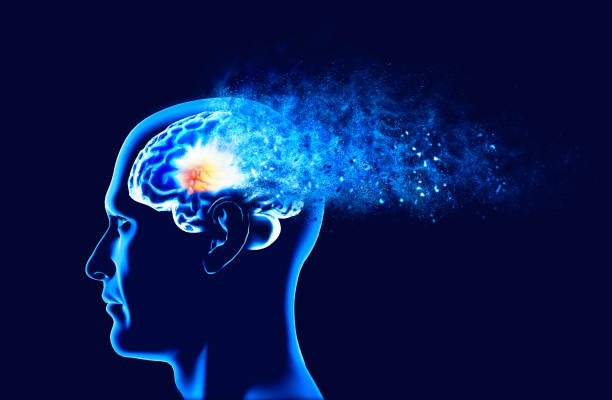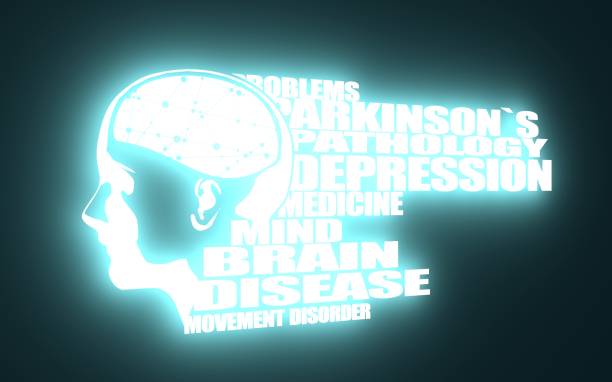Introduction
Today in this article we discuss How to Recognize Early Signs of Cognitive Disorders. Cognitive disorders, also known as neurological disorders, affect the brain’s ability to process and retain information. In our rapidly aging world, recognizing the early signs of these disorders has become increasingly important. Early detection can lead to better management and treatment, potentially improving quality of life. The purpose of this article is to highlight how early signs of cognitive disorders can be identified, helping individuals and their families to be aware and proactive.
1. Understanding cognitive disorders
Cognitive disorders encompass a range of conditions that impair cognitive functions such as memory, reasoning, and problem solving. These disorders can vary from mild cognitive impairment to more severe conditions such as Alzheimer’s disease and other forms of dementia. Understanding these disorders is the first step toward recognizing their early symptoms. Cognitive disorders can affect people of all ages, but are more common in older adults. Early detection involves knowing what changes to look for in daily life and routines.
2. Memory loss: first symptom

Memory loss is often one of the early indicators of cognitive disorders. It can start with minor forgetfulness, such as forgetting names or recent events, and progress to more serious problems, such as not remembering important dates or appointments. It is important to distinguish between normal age-related forgetfulness and more severe memory problems that may indicate cognitive impairment. Tracking memory lapses over time can provide valuable information for diagnosis.
3. Difficulty in problem solving
Challenges with problem solving and decision making can be early signs of cognitive decline. Individuals may struggle with tasks that require planning and organization, such as managing finances or following a recipe. They may also have difficulty understanding complex instructions or solving everyday problems that were previously manageable. Observing these changes can be crucial for early intervention.
4. Disorientation and Confusion
Disorientation and confusion, especially with respect to time and place, are important warning signs. Individuals may become confused about where they are or how they got there, or they may lose track of time. This disorder can affect their ability to navigate familiar environments and perform normal activities. Early recognition of these symptoms can help in getting proper medical advice.
5. Challenges in communication
Difficulty in communication is another indicator of cognitive disorders. This may include difficulty finding the right words, repeating oneself, or following and participating in a conversation. Individuals may struggle to understand or respond appropriately to questions and instructions. These communication problems can affect social interactions and daily functioning.
6. Mood and personality changes
Cognitive disorders can also cause significant changes in mood and personality. Individuals may exhibit sudden changes in their emotional state, such as irritability, depression, or anxiety. Personality changes, such as becoming more withdrawn or exhibiting unusual behaviors, can also be signs of cognitive decline. Observing these changes can provide early clues about underlying cognitive problems.
7. Difficulty with daily activities

As cognitive impairment progresses, individuals may increasingly have difficulty performing everyday tasks. This includes personal hygiene, cooking, cleaning and managing personal affairs challenges. Difficulty performing familiar tasks that were previously performed with ease may indicate cognitive impairment. Monitoring these problems can help with early diagnosis and intervention.
8. Poor judgment
Impaired judgment is an important symptom of cognitive decline. Individuals may make poor decisions or engage in risky behaviors that they may not have previously considered. This may include financial decisions, social interactions, or personal safety. Recognizing these changes in judgment and decision-making may be important for early identification of cognitive disorders.
9. Repetition of questions and stories
Repeating questions or stories can be an early sign of cognitive disorders. Individuals may ask the same question multiple times or repeat the same story, indicating difficulty retaining new information or remembering previous conversations. This repetitive behavior may be a sign of underlying cognitive problems that need attention.
10. Changes in local awareness
Alterations in spatial awareness can also indicate cognitive disorders. Individuals may struggle with tasks that require an understanding of spatial relationships, such as parking a car or navigating a familiar route. Difficulty with visuospatial tasks may be an early sign of cognitive decline and should be monitored.
11. Social withdrawal
Social withdrawal is another common symptom of cognitive disorders. Individuals may begin to withdraw from social activities and relationships, preferring to be alone or avoiding social interactions. This withdrawal may be due to embarrassment over cognitive difficulties or a lack of interest in previously enjoyable activities. Observing changes in social behavior can be an important indicator of cognitive problems.
12. Loss of interest in hobbies
A significant loss of interest in hobbies and activities that were once enjoyed may indicate cognitive decline. Individuals may lose motivation for activities they previously found fulfilling, indicating potential cognitive problems. Tracking changes in engagement with hobbies and interests can provide valuable insight into cognitive health.
13. Difficulty in following instructions

Difficulty following directions or instructions is a common early symptom of cognitive disorders. Individuals may struggle to follow step-by-step instructions or require repeated explanations to understand tasks. This difficulty can affect their ability to complete normal activities and responsibilities, indicating possible cognitive impairment.
14. Changes in sleep patterns
Changes in sleep patterns may also be associated with cognitive disorders. Individuals may experience sleep disturbances, insomnia, or changes in the sleep-wake cycle. Sleep disturbances can affect cognitive function and may be an early sign of cognitive decline. Monitoring sleep patterns can provide additional information for early diagnosis.
15. Seeking Professional Help
If you or a loved one exhibits any of these early signs of cognitive disorders, it is important to seek professional help. A health care provider can perform a thorough evaluation and provide guidance on next steps for diagnosis and treatment. Early intervention can significantly affect the management and progression of cognitive disorders, improving overall quality of life.
Final Words
How to Recognize Early Signs of Cognitive Disorders. Recognizing early signs of cognitive disorders is critical for effective management and treatment. By being aware of symptoms such as memory loss, difficulty solving problems, mood swings, and poor judgment, individuals and families can take proactive steps toward diagnosis and intervention. Understanding and monitoring these symptoms can help prompt medical advice and help, leading to better outcomes and improved quality of life.
